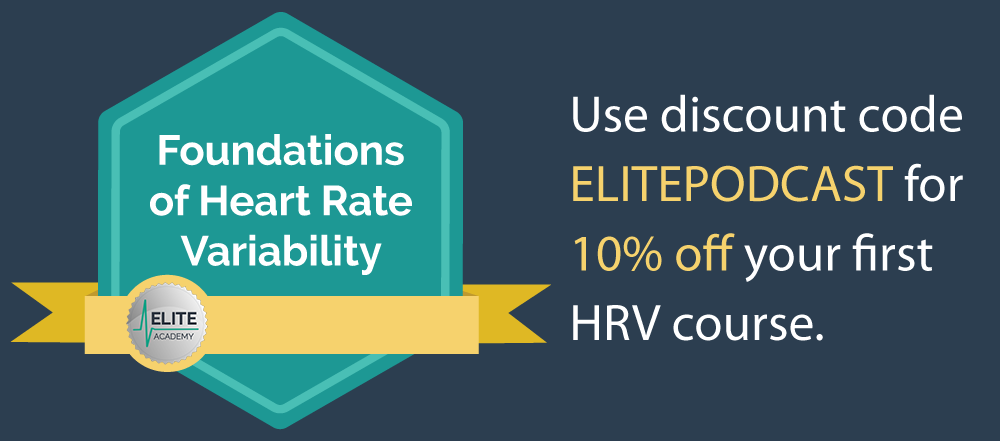In This Episode
Today’s guest is Daniel Quintana. Dan is a Research Fellow at the University of Oslo and received his PhD in Psychology from the University of Sydney in 2013. His research focuses on the role of heart rate variability, the autonomic nervous system and hormones on mental health. In this episode, we’re going to pick Dan’s brain on the relationship between mental and physical health, autonomic dysregulation, how HRV reflects mental health condition, antidepressants and other interventions.
TOPICS:
- 1:23 – Dan’s Background and Introduction
- 2:50 – Some alarming figures with respect to mental health costs
- 4:25 – The focus of Dan’s research: mental health, autonomic nervous system, and psychophysiology
- 4:47 – What exactly is psychophysiology, one of Dan’s research focuses
- 6:26 – How did Dan first start out in this field of study
- 7:37 – Dan’s first job out of college and what it is like working in a research center
- 8:16 – What role does the autonomic nervous system play in mental health?
- 10:07 – What is Psychological Flexibility and Emotional Self Regulation
- 12:48 – Examples of resetting your autonomic nervous system
- 15:24 – How to regulate your thoughts with emotional self regulation
- 17:02 – Constant worryings effect upon heart rate variability
- 19:09 – The largest influence on heart rate variability
- 20:02 – How over quantifying and optimizing your life can be a detriment
- 21:53 – The bidirectional relationship between worry and heart rate variability
- 23:49 – An interesting and powerful note regarding diseases and immortality
- 26:35 – Using heart rate variability as an early marker for cardiovascular illness and psychological illness
- 27:45 – Specific heart rate variability metrics and standards of measurement
- 30:46 – Depressions link to low heart rate variability
- 33:34 – Antidepressant medications effect on heart rate variability
- 35:47 – How tricyclic antidepressants and selective serotonin reuptake inhibitors work
- 37:10 – Additional implications antidepressants have including metabolic effects.
- 38:05 – Continued long term use of antidepressants and their implications
- 41:01 – Do certain drugs that affect HRV have a lasting effect on health?
- 43:09 – Non pharmacological interventions that improve heart rate variability
- 46:27 – Cognitive behavioral therapy and the patient therapist relationship
- 49:46 – Guided breathing and long exhales lead to improved heart rate variability
- 50:45 – Increased aerobic fitness levels and researching extreme athletes
- 53:02 – Am I too old or too young to measure heart rate variability
- 54:45 – The benefits of performing an at home HRV recording as opposed to a lab
- 57:25 – Dan’s own self quantification and data collection
- 58:42 – Additional ways to increase heart rate variability
- 59:30 – HRV improvements from acute temperature changes
- 62:27 – How to contact Dan





